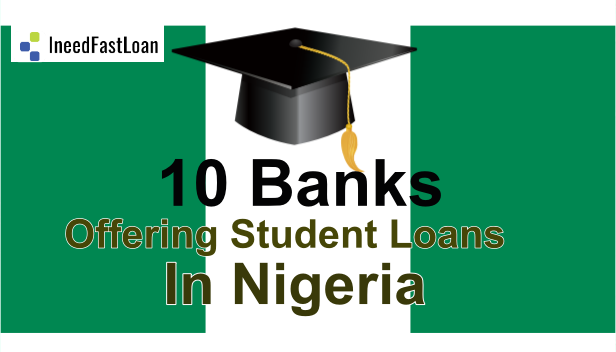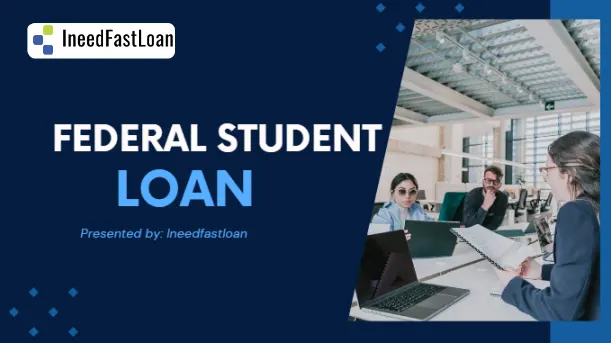Exploring Popular with Loans for Students in South Africa Approval

Pursuing higher education is a significant milestone in anyone’s life, often marking the transition into adulthood and the beginning of one’s professional journey. However, the cost of higher education can be a considerable barrier for many students. In South Africa, the financial challenges of obtaining a tertiary education are a common concern, but fortunately, there are various student loan options available to help bridge this gap. This article provides an in-depth guide on how to apply for loans for students in South Africa, ensuring you have all the information you need to make an informed decision.
What you Must Know About the South Africans Student Loans
Student loans are financial aids designed to help students cover the cost of their tertiary education. These loans can cover tuition fees, accommodation, textbooks, and other related expenses. In South Africa, student loans are offered by various financial institutions, including banks, private lenders, and government programs. Each option has its unique terms, conditions, and eligibility criteria.
Types of Student Loans Available
- Bank Loans: Major banks in South Africa, such as Standard Bank, ABSA, Nedbank, and FNB, offer student loans with varying interest rates and repayment terms.
- Government Loans: The National Student Financial Aid Scheme (NSFAS) is a government-funded program providing financial aid to eligible students from disadvantaged backgrounds.
- Private Loans: Some private financial institutions and companies offer student loans, often with more flexible terms but higher interest rates.
Key Considerations Before Applying
Before applying for a student loan, consider the following:
- Interest Rates: Compare the interest rates offered by different lenders. Government loans typically have lower interest rates compared to private loans.
- Repayment Terms: Understand the repayment schedule, including the grace period after graduation.
- Eligibility Criteria: Check the eligibility requirements for each loan option. Some loans may require a guarantor or proof of income.
- Loan Amount: Determine how much you need to borrow and ensure it covers your educational expenses.
- Additional Costs: Be aware of any additional fees associated with the loan, such as administration fees or insurance.
Step-by-Step Guide to Applying for Student Loans in South Africa
Learn how to apply for loans for students in South Africa with our comprehensive guide. Explore options from government and bank loans, understand eligibility criteria, and follow step-by-step instructions for a successful application. Get the financial support you need for your education today. Check out Unisa student loan approvals
1. Research Your Options
Start by researching the various student loan options available in South Africa. Look into the specific details of each loan, including interest rates, repayment terms, and eligibility criteria. Create a list of potential lenders and compare their offerings.
2. Determine Your Eligibility
Each loan option has specific eligibility criteria. For instance, NSFAS loans are only available to South African citizens who meet certain income thresholds. Bank loans may require a co-signer or proof of income. Make sure you meet the requirements for the loans you are interested in.
3. Gather Required Documents
When applying for a student loan, you will need to provide various documents. These typically include:
- Identification Documents: A certified copy of your South African ID.
- Proof of Admission: A letter of acceptance from your chosen educational institution.
- Academic Records: Your latest academic transcripts or results.
- Proof of Residence: A recent utility bill or similar document.
- Financial Documents: Proof of income or financial status, such as pay slips or bank statements.
- Guarantor Information: If required, the guarantor’s ID and proof of income.
4. Complete the Application Form
Once you have gathered all the necessary documents, you can proceed to fill out the loan application form. This can usually be done online through the lender’s website or by visiting a branch in person. Ensure that you provide accurate and complete information to avoid delays in the application process.
5. Submit the Application
Submit your completed application form along with the required documents. If you are applying online, you may need to upload scanned copies of the documents. For in-person applications, bring the original documents and copies.
6. Wait for Approval
After submitting your application, the lender will review your information and determine whether you qualify for the loan. This process can take a few days to several weeks, depending on the lender. Be prepared to provide additional information or documentation if requested.
7. Review the Loan Agreement
If your application is approved, you will receive a loan agreement outlining the terms and conditions of the loan. Carefully review this document to understand your obligations, including the interest rate, repayment schedule, and any additional fees. If you have any questions, seek clarification from the lender before signing.
8. Sign the Loan Agreement
Once you are satisfied with the terms of the loan, sign the agreement and return it to the lender. This step finalizes the loan process, and the funds will be disbursed according to the lender’s policies. The money may be paid directly to your educational institution or to your bank account.
9. Manage Your Loan Responsibly
After receiving the loan, it is crucial to manage it responsibly. Keep track of your expenses and ensure that the funds are used for educational purposes. Start planning for repayment well before the grace period ends, and consider making interest-only payments while you are still studying if your lender allows it.
Exploring Popular Loans for Students Providers in South Africa
National Student Financial Aid Scheme (NSFAS)
NSFAS is a government initiative aimed at providing financial assistance to students from disadvantaged backgrounds. The scheme covers tuition fees, accommodation, textbooks, and other essential expenses.
Eligibility Criteria:
- South African citizenship.
- Financial need based on household income.
- Acceptance into a recognized tertiary institution.
Application Process:
- Apply online through the NSFAS website during the application period.
- Provide the required documents, including proof of income and academic records.
- Await approval and follow up with any additional information if requested.
Standard Bank Loans for Students
Standard Bank offers student loans to cover tuition, accommodation, textbooks, and equipment. They offer competitive interest rates and flexible repayment terms.
Eligibility Criteria:
- South African citizenship or permanent residency.
- Proof of admission to a recognized institution.
- A co-signer with a stable income.
Application Process:
- Visit a Standard Bank branch or apply online.
- Provide necessary documents, including proof of income for the co-signer.
- Complete the application form and submit it for review.
ABSA Loans for Students
ABSA provides student loans with flexible repayment options and a grace period after graduation. The loan can cover tuition fees, accommodation, and study materials.
Eligibility Criteria:
- South African citizenship or permanent residency.
- Proof of admission to a recognized institution.
- A co-signer with a stable income.
Application Process:
- Apply online or at an ABSA branch.
- Submit required documents, including academic records and proof of income for the co-signer.
- Await approval and sign the loan agreement.
FNB Loans for Students
FNB offers student loans with various repayment options and competitive interest rates. The loan can cover tuition fees, accommodation, textbooks, and other expenses.
Eligibility Criteria for the Loans for Students:
- South African citizenship or permanent residency.
- Proof of admission to a recognized institution.
- A co-signer with a stable income.
Loans for Students Application Process:
- Visit an FNB branch or apply online.
- Provide necessary documents, including proof of income for the co-signer.
- Complete the application form and submit it for review.
Nedbank Loans for Students
Nedbank provides student loans to cover the full cost of education, including tuition, accommodation, textbooks, and equipment. They offer a grace period for repayment after graduation.
Loans for Students Eligibility Criteria:
- South African citizenship or permanent residency.
- Proof of admission to a recognized institution.
- A co-signer with a stable income.
Loans for Students Application Process:
- Apply online or at a Nedbank branch.
- Submit required documents, including academic records and proof of income for the co-signer.
- Await approval and sign the loan agreement.
Tips for a Successful Loans for Students
Here are what you need to know about the Student Loan Application in South Africa:
- Start Early: Begin researching and preparing your application well before the academic year starts. This will give you ample time to gather all necessary documents and address any issues that may arise.
- Accurate Information: Ensure that all information provided in the application is accurate and complete. Inaccurate information can lead to delays or rejection of your application.
- Maintain Good Academic Records: Good academic performance can improve your chances of loan approval, especially if you need to reapply in subsequent years.
- Seek Advice: If you are unsure about any aspect of the loan application process, seek advice from your educational institution’s financial aid office or directly from the lender.
- Plan for Repayment: Understand the repayment terms and start planning for repayment early. Consider part-time work or internships to help manage future payments.
Conclusion
Applying for Loans for Students can be a complex process, but with the right information and preparation, it can be manageable. Whether you opt for a government-funded loan like NSFAS or a loan from a bank or private lender, it’s essential to understand the terms and conditions and to plan for responsible management and repayment of the loan.
Remember, investing in your education is one of the best decisions you can make for your future. With the right financial support, you can focus on your studies and work towards achieving your academic and professional goals. Good luck with your application, and may your educational journey be a successful and fulfilling one.
FAQS About Student Loan in South Africa
-
What types of student loans are available in South Africa?
There are three main types of student loans available in South Africa: government loans (such as NSFAS), bank loans (offered by major banks like Standard Bank, ABSA, Nedbank, and FNB), and private loans from financial institutions and companies. Each type has different terms, interest rates, and eligibility requirements.
-
How do I know if I’m eligible for a student loan?
Eligibility criteria vary by lender. Generally, you must be a South African citizen or permanent resident, have proof of admission to a recognized tertiary institution, and, for bank loans, have a co-signer with a stable income. Specific criteria, such as income thresholds for NSFAS loans, should be checked with each lender.
-
What documents are required to apply for a Loans for Students?
Commonly required documents include a certified copy of your South African ID, proof of admission, academic records, proof of residence, financial documents (such as pay slips or bank statements), and guarantor information if needed. Each lender may have additional specific requirements.
-
How long does it take to get approved for a student loan?
The approval process can take anywhere from a few days to several weeks, depending on the lender. It’s important to apply early and provide all required documents to avoid delays. Be prepared to submit additional information if requested by the lender.
-
What are the repayment terms for student loans in South Africa?
Repayment terms vary by lender. Government loans like NSFAS typically have more favorable terms and lower interest rates. Bank loans often have a grace period after graduation before repayments begin. It’s important to understand the specific repayment schedule, interest rates, and any additional fees associated with your loan before signing the agreement.






